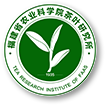Abstract:
The tea green leafhoppers, Empoasca onukii Matsuda, is one of the most important and destructive pest insects that troubles the tea plantations in China. Currently, the field management is gradually steering away from relying on chemical pesticides toward applying environmentally friendly methods. Numerous significant advances in that regard have been realized in recent years. Over the past ten years from 2011 to 2021, the approaches by altering the existing operations, modifying the insecticide applications, and manipulating the pest habitat as well as using biological agents and physical control measures were introduced in China. Through a literature review, this article presents the relevant information, with an emphasis on ecologically green concepts and techniques, to assist our colleagues in their direction-setting for future research to resolve the thorny problem the industry has been facing.




 下载:
下载: